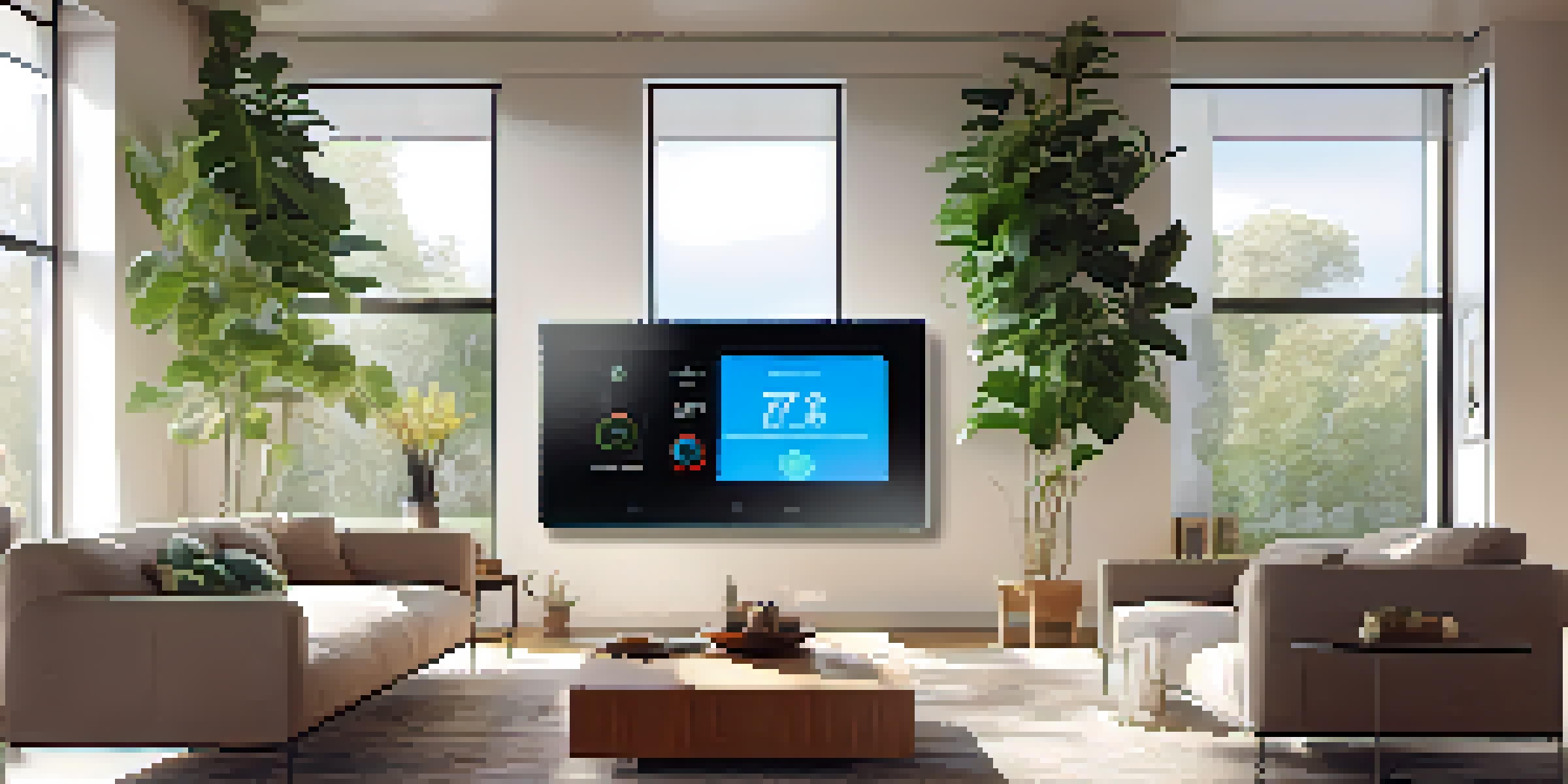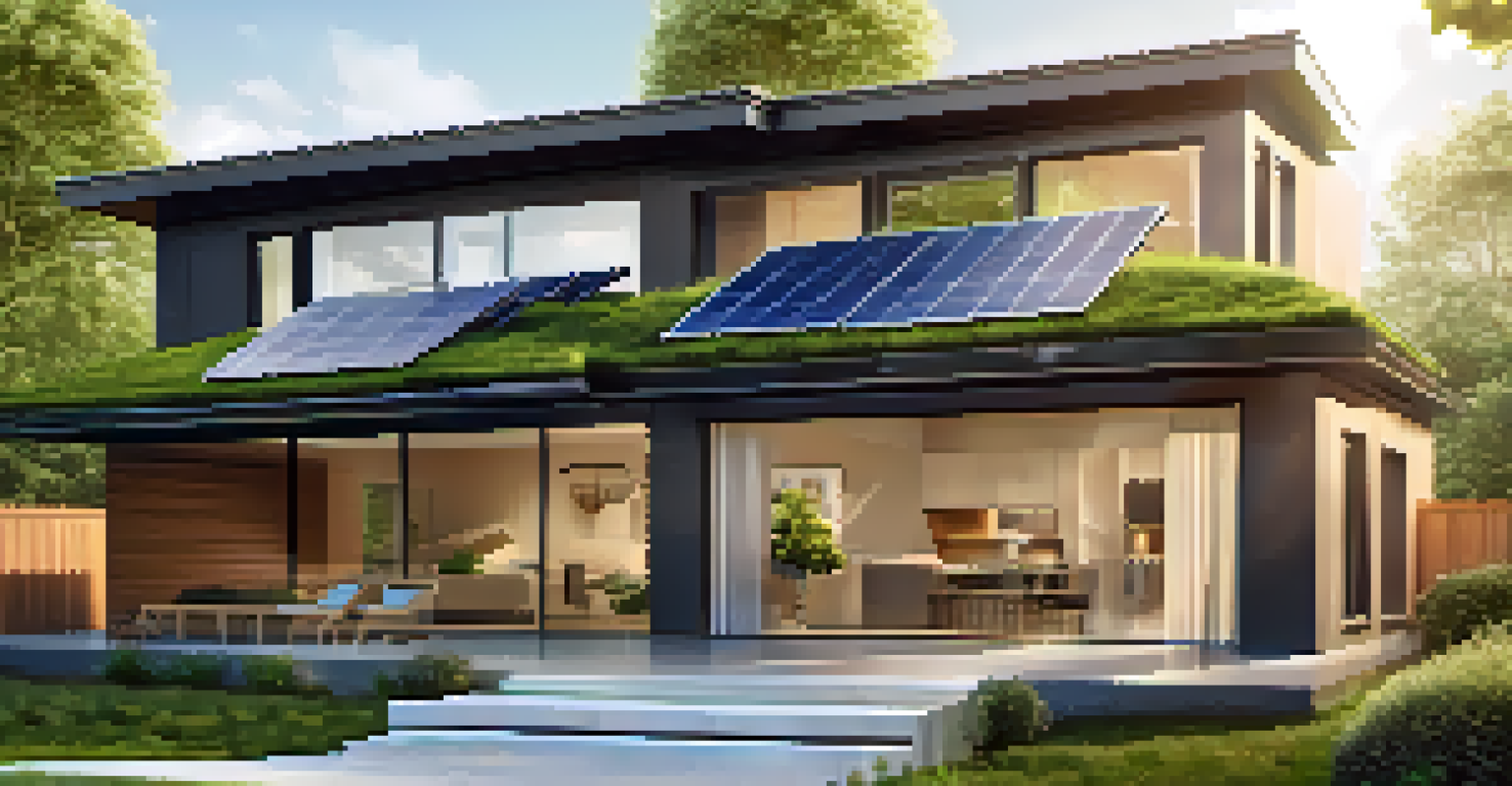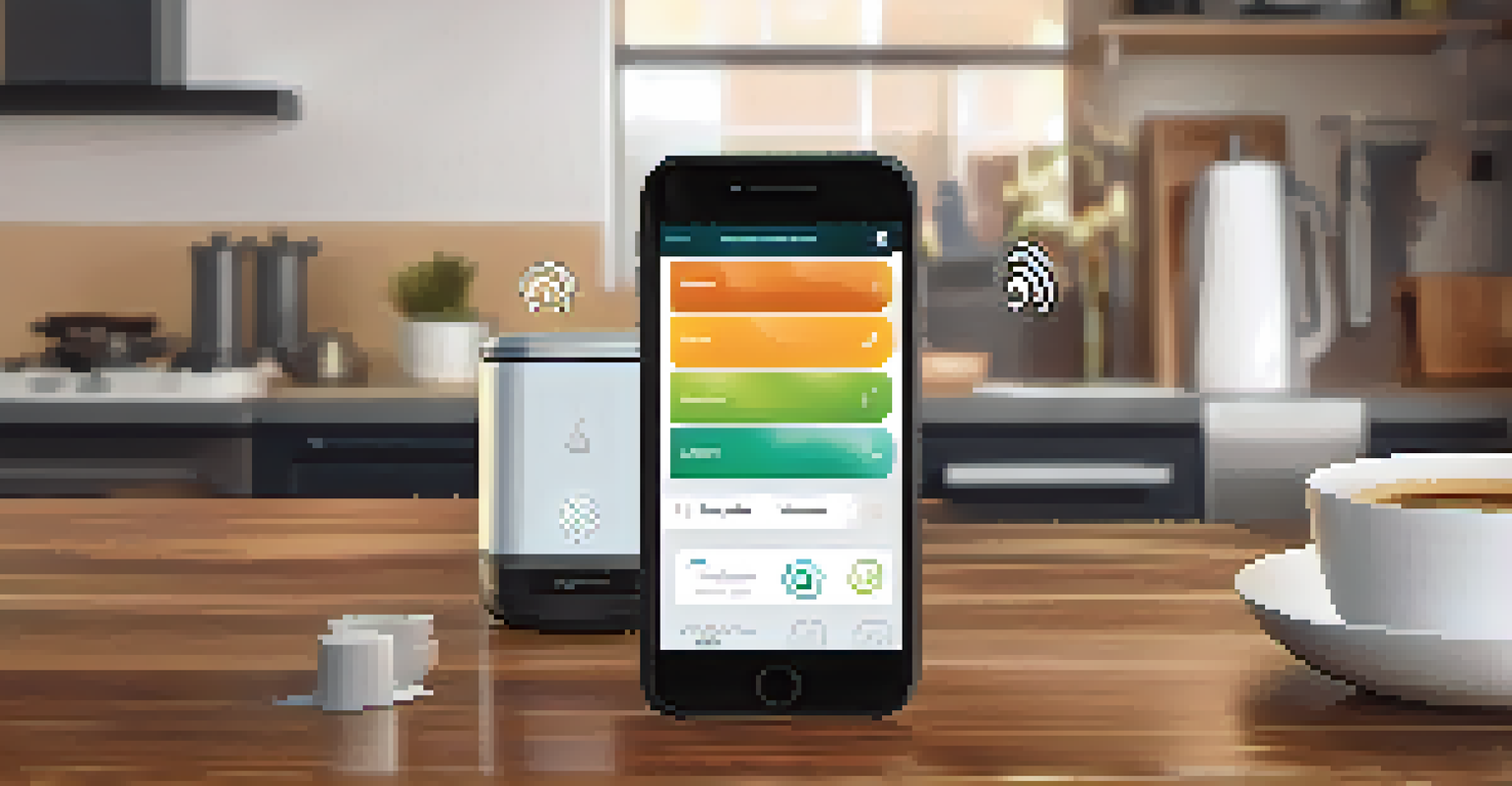Home Automation: Schedule HVAC for Optimal Efficiency

Understanding the Basics of Home Automation Systems
Home automation systems allow you to control various devices in your house, including your HVAC system, via smart technology. These systems can be programmed or controlled remotely, making it easier to maintain optimal indoor temperatures. Imagine being able to adjust your home's heating or cooling right from your smartphone, no matter where you are.
The greatest energy source we have is our ability to manage our energy use effectively.
One of the key benefits of home automation is energy efficiency. By scheduling your HVAC system to operate only when needed, you can significantly reduce energy consumption and lower your utility bills. It’s like having a personal assistant for your energy use, ensuring that your home is comfortable without wasting resources.
Additionally, home automation systems can learn your preferences over time. They can adjust settings based on your daily routines and even respond to changes in weather. This level of adaptability not only enhances comfort but also contributes to long-term savings and a smaller carbon footprint.
Why Scheduling HVAC is Crucial for Efficiency
Scheduling your HVAC system is vital for maximizing its efficiency. When your system runs continuously without a schedule, it can lead to unnecessary energy usage and higher costs. Think of it like a marathon runner—if they don't pace themselves, they won't finish strong.

By setting a schedule, you ensure that your HVAC system operates only when necessary. For example, you can program it to cool your home before you arrive from work, so it’s comfortable when you walk through the door. This not only enhances your comfort but also prevents the system from working harder than it needs to.
Home Automation Enhances Comfort
Home automation systems allow you to control your HVAC remotely, ensuring optimal indoor temperatures and energy efficiency.
Moreover, consistent scheduling can extend the lifespan of your HVAC unit. When you allow it to rest during off-peak hours, it reduces wear and tear. This means fewer repairs and replacements, saving you money in the long run.
How to Create an Effective HVAC Schedule
Creating an effective HVAC schedule starts with understanding your daily routine. Take note of when you typically wake up, leave for work, and return home. For instance, if you leave for work at 8 AM and come back at 5 PM, you might want your system to start cooling down your home an hour before you arrive.
Efficiency is doing better what is already being done.
Consider the seasons as well—your heating or cooling needs will change. In winter, you might want to set your thermostat lower during the day while you’re out, and higher in the evenings. This approach ensures that your home remains comfortable without overworking your HVAC system.
Lastly, don’t forget to factor in special occasions or changes in your routine, like vacations. Many smart systems allow for temporary overrides, so you can adjust settings easily without needing to reprogram everything. Flexibility is key to maintaining efficiency.
Leveraging Smart Thermostats for Advanced Scheduling
Smart thermostats are a game-changer when it comes to scheduling your HVAC system. These devices can be programmed to adjust temperatures based on your preferences and habits. For example, if you usually come home around 5 PM, a smart thermostat can start cooling your home at 4:30 PM, ensuring you walk into a comfortable environment.
Many smart thermostats also offer learning capabilities. They track your behavior over time and automatically adjust settings to optimize performance. It’s like having a personal butler for your HVAC system that knows exactly how you like your home temperature.
Scheduling HVAC Boosts Efficiency
By setting a schedule for your HVAC system, you can reduce energy consumption, lower costs, and extend the unit's lifespan.
Additionally, these devices can be controlled remotely via smartphone apps. So, if your plans change, you can easily adjust your HVAC settings from anywhere. This level of convenience means you’ll never have to worry about coming home to an uncomfortable house again.
Integrating HVAC with Other Home Automation Devices
One of the benefits of home automation is the ability to integrate various devices for enhanced efficiency. For instance, your HVAC system can work in conjunction with smart blinds or shades. By closing shades during the hottest part of the day, you can reduce the load on your air conditioning system.
Moreover, integrating your HVAC with smart lighting can further enhance energy efficiency. If you program the lights to turn off when you leave home, your HVAC system won’t have to work as hard to cool or heat unoccupied spaces. This holistic approach to automation creates a more comfortable and energy-efficient home environment.
Don’t forget about smart sensors, either. These devices can detect occupancy and adjust your HVAC system accordingly. If a room is empty, the system can reduce output, saving energy without sacrificing comfort in occupied areas.
Monitoring and Adjusting Your HVAC Schedule Over Time
Once you’ve established a schedule for your HVAC system, it’s essential to monitor its effectiveness. Checking energy bills and temperature comfort levels regularly can help you gauge whether your schedule is working. If you notice an increase in energy costs, it might be time to adjust your settings.
Seasonal changes also necessitate adjustments to your HVAC schedule. As temperatures fluctuate, your heating and cooling needs will change. Regularly revisiting your schedule ensures that it remains effective and aligned with your lifestyle and preferences.
Smart Thermostats for Convenience
Smart thermostats learn your habits and can adjust temperatures automatically, providing a comfortable home environment with minimal effort.
Finally, don’t hesitate to experiment with different settings. Home automation allows for flexibility, so if something isn’t working, you can easily make changes. This trial-and-error approach can lead to the optimal schedule that perfectly suits your home’s needs.
The Future of HVAC and Home Automation Technology
The future of HVAC systems and home automation technology is bright and brimming with potential. With advancements in AI and machine learning, HVAC systems will likely become even smarter, learning from your habits and optimizing themselves without manual input. Imagine a system that knows not just your schedule, but also your preferences for humidity, air quality, and more.
Moreover, the integration of renewable energy sources, such as solar panels, is becoming increasingly common. Future HVAC systems may be designed to work seamlessly with these energy sources, further enhancing efficiency and sustainability. This means you can enjoy a comfortable home while also being eco-conscious.

As technology continues to evolve, the options for home automation will expand, making it easier and more efficient to manage HVAC systems. Staying informed about these trends can help you make the most of your home automation setup and ensure you’re always getting the best performance out of your HVAC system.